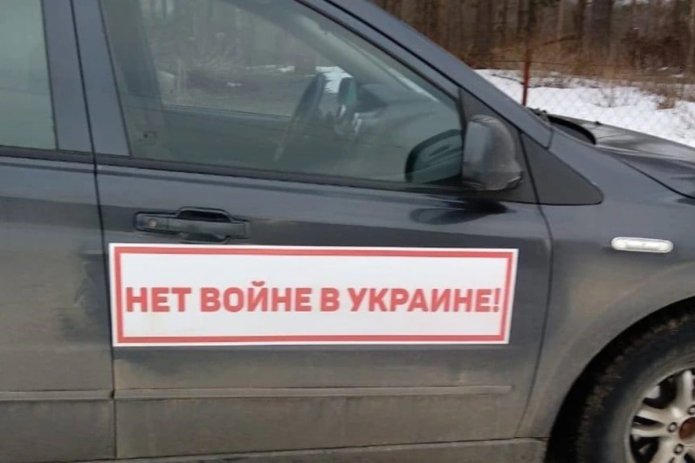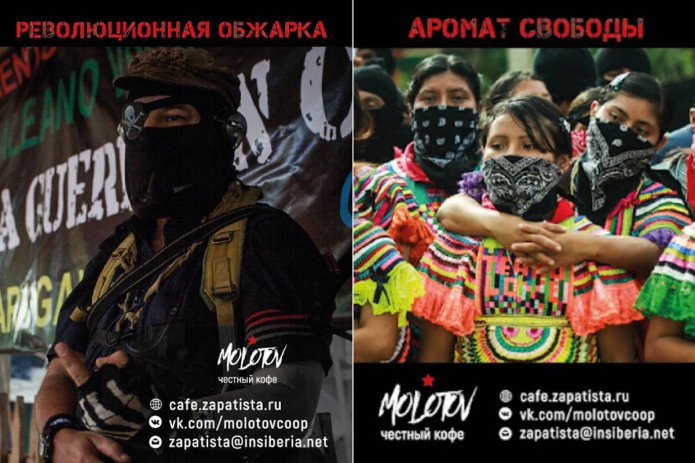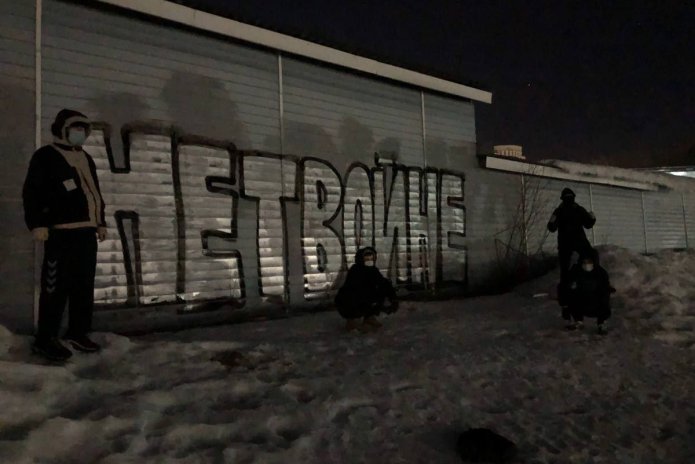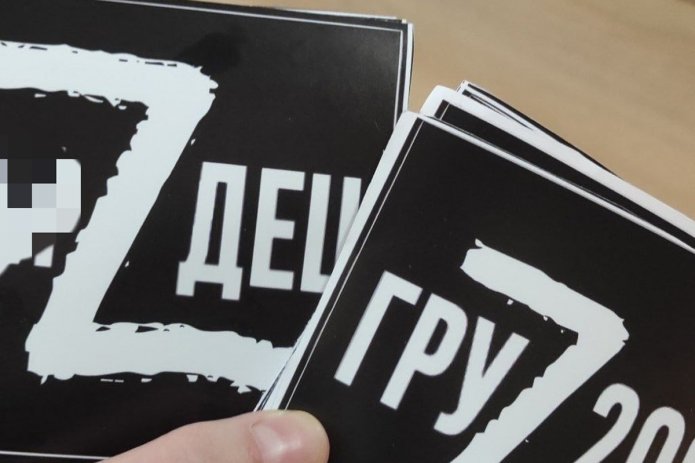Russian troops’ invasion of Ukraine on February 24th set off a wave of protests all over Russia. People were going to anti-war protests, distributed anti-war flyers, put car stickers denouncing Russia’s aggression in Ukraine, and left anti-war slogans in houses' hallways. The policemen started persecuting activists for anti-war agitation: fining them and even criminally prosecuting them.
Pressure on those who expressed opposition to Russian military actions in Ukraine started immediately after the first protests. At that time the news of people being arrested for anti-war stickers or flyers already started appearing.
Distribution of protest flyers and stickers has been of interest to law enforcement officials before, says the analyst from OVD-Info Grigory Durnovo.
«We can now state that [such cases] are much more likely to become a reason for administrative and even criminal prosecution, » says the OVD-Info expert. — It also seems that now there are more cases of denunciations concerning [anti-war] inscriptions. There are cases where people were detained for stickers or inscriptions, say, on their bags, thanks to some vigilant individual who reported them, — I don’t recall such cases happening before.
Administrative proceedings
On February 26th two local residents Mikhail Svyatlovsky and Elizaveta Okhota were detained in Moscow for putting up anti-war posters. They were charged with minor hooliganism (Article 20.1 of the Administrative Code) and arrested for 12 days.
On March 13th the court of the city Velikie Luki fined Ivan Kotkov, a 62-year-old retiree-farmer, 30 thousand rubles. The reason was the sticker «No to the war in Ukraine!» on his car. The man was charged with discrediting the Russian Armed Forces (Article 20.3.3 of the Administrative Code).

Car of Ivan Kotkov / Photo: “Sever.Real”
On March 14th Moscow policemen drew up a report on local resident Sergey Kriev for «violation of the established procedure of conduct of public meetings» (part 5 article 20.2 of the Administrative Code) for stickers «Aroma of freedom» and «Revolutionary roast» from «Molotov» coffee union. The law-enforcement officials considered such stickers as «prepared visual means of agitation». Kriev himself said that he didn’t plan to participate in the anti-war protest. He was detained when he passed by the «Tverskaya» metro station.
«There I saw several „National guard of Russia“ vehicles, police cars, and vans. As I was passing by the metro station, I noticed police officers approaching random bystanders, checking their backpacks and pockets. Almost immediately, two police officers came up to me and stopped me demanding to show the contents of my backpack. I stopped and asked for a reason for such a request and mentioned that I consider their demand unlawful. After my polite refusal I was surrounded by several more regular and riot police officers», — shared the man.

Stickers of the “Molotov” coffee union / Photo provided by “Molotov” coffee union to “Mediazona”
On March 16th local resident Yulia Yudina-Klyugvant was detained in Moscow. The reason was an anti-war sticker on her car. As a result, a protocol was drafted up on her under the article for the Russian Armed Forces discreditation (part 1 of Article 20.3.3 of the Administrative Code).
«In „Levoberezhny“ police department major of police Kondratieva, who was drafting up the protocol, asked me: „What do you think about our country’s commander in chief?“, „How do you feel about the war?“. When the lawyer demanded to reflect in the protocol the question exactly how they were asked, the major corrected herself, saying that she meant special operation, but the „war“ still remained in the protocol.» — shared the Muscovite.
Anti-war stickers and a gun to one’s head
On March 14th Moscow activist Alexander Teplyakov told the «Sota», how he was threatened in the police department by a security officer of the Center for Countering Extremism, Alexey Okopny.
Teplyakov was detained on March 1st when he went to the printing house to pick up anti-war stickers. At the police station, officers tried to find out who is involved with the stickers and why, as well as «who would need this,» and promised that if Teplyakov doesn’t talk, «people will come after him». Eventually, the CCE operative Okopny arrived, who is known for use of violence against detained activists.

Photo provided by Aleksander Teplyakov to “Sota”
«They took me into the empty office. First, they started beating me up. <…> Mostly they hit me on the head and randomly kicked, Okopny punched me in the chest with his fist. It was particularly bad when they hit me on the head because they didn’t like something, for example, when I was saying something wrong.» — recalls the activist.
After the beating, the law enforcers asked Alexander Teplyakov to write down the names of his friends who are in charge of stickers distribution. At the same time Okopny held a gun to Teplyakov’s head and threatened that if he didn’t start writing, he would be «returned to his parents <…> either as a corpse or in a vegetative state». Eventually, the activist named Dmitry Ivanov, the author of the Telegram channel «Protest MSU». After that, he was released.
Criminal proceedings
Criminal proceedings for anti-war agitation are mainly initiated under the article on vandalism (Article 214 of the Criminal Code). The maximum penalty under this article is up to three years in a penal colony. At the time of this publication, according to OVD-Info’s data, at least 20 criminal cases on vandalism were initiated as a result of anti-war agitation.
On February 25th two «vigilant» residents of Belgorod detained Vasily D. when they witnessed him spraying several anti-war inscriptions at the public transportation stop, «Vodstroi». The young man was wrestled to the ground and held until the police arrived. The next day a criminal case was opened against the detainee for vandalism motivated by political, ideological, racial, national, or religious hatred (Part 2 Article 214 of the Criminal Code).

Graffiti “No war” in Vladimir (one of a series), that became a reason for a criminal case / Photo: “Dovod”
On March 18th a pensioner was detained in Tomsk region and criminal proceedings on vandalism were instituted against her (Part 2 Article 214 of the Criminal Code). The case was triggered by an anti-war inscription that, according to investigators, the woman wrote with white paint on the wall of «Rybnik» Cultural Center.

Inscription on the wall of “Rybnik” Cultural Center, blurred by the MIA / Photo: press office of MIA Tomsk regional department
The same day, a street artist Egor Ledyakin (pseudonym Leonid Chyorny) was detained in Yekaterinburg, allegedly for putting up anti-war stickers. Stickers «GruZ (Cargo) 200» and «П*Z**Ц» were found on him upon his arrest. As a result, a criminal case on vandalism (article 214 of the Criminal Code) was opened against the artist.

Stickers that were the reason for Egor Ledyakin / Photo: team ПСЛЧ
On March 28th in Tula criminal proceedings on vandalism were instituted against two local residents (Article 214 of the Criminal Code). They were detained for anti-war inscriptions in the hallways of four buildings. According to Ksenia Sobchak’s telegram channel «Beware of the news!», the reason for the criminal prosecution was the inscriptions, provided in the channel in a censored form: «Overthrow ******! Stop the ***!». Later, the anarchist telegram channel «Prometheus» published the photos of inscriptions from Tula in their original form: «Overthrow Putler! Stop the War!». According to Sobchak’s channel, a local resident complained about these inscriptions.
Dmitry Piskunov, an OVD-Info lawyer, says that criminal cases on the distribution of political stickers or inscriptions have already been initiated under the article on vandalism before. Usually, they ended up with fines, notes the lawyer. «However, if earlier it was approximately ten cases per year, currently it is at least 14 per month. We will have to see what the sentences would be like. It’s hard to predict right now. Potentially, following the old practice, they will dismiss criminal cases on vandalism or limit them to court fines. Although, if there is no such trend and they will be putting people to jail, then we can talk about a more repressive reincarnation of Article 214 [of the Criminal Code],» — added Piskunov.
Karina Merkuryeva



